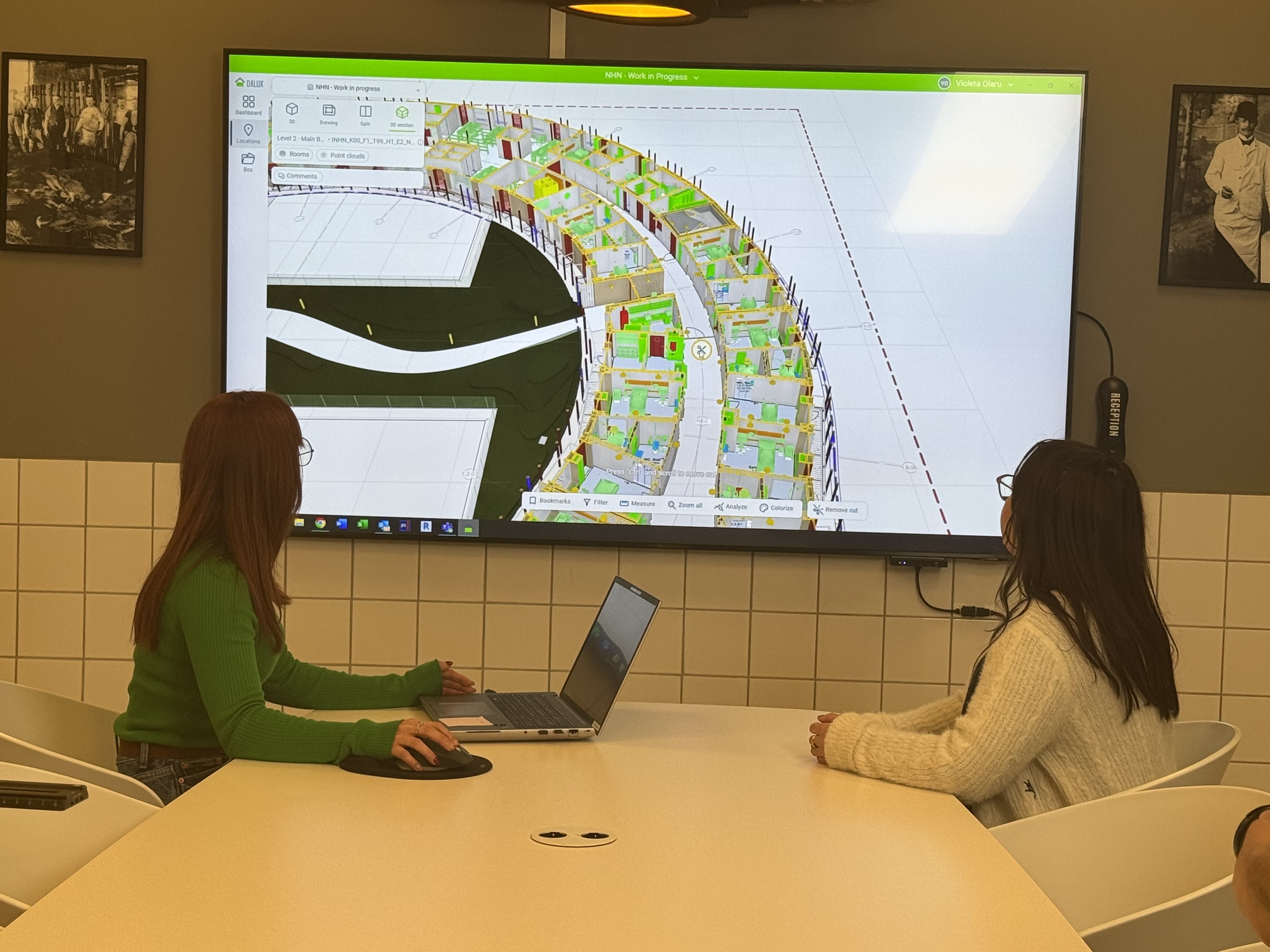
Our engineers are experts in their field and have experience with e.g. ventilation (HVAC), plumbing, sprinkler, fridge and electricity
Engineers in the construction industry play a central role in developing, designing and implementing technical solutions that are fundamental to the functionality and efficiency of buildings and industrial plants. With their expertise and experience, they ensure that buildings' technical systems function optimally, energy efficiently and in accordance with current legislation. Tech-Huset's engineers can contribute by creating integrated and sustainable solutions within varying branches of the engineering profession. We have experts in plumbing, electricity, refrigeration, sprinklers and ventilation (HVAC) who can take care of various projects such as apartment complexes, industrial buildings, laboratories.
The latest project where we have a project team attached is a 123,000 m2 super hospital in Hillerød. Here we have specialists attached to make electricity, plumbing, ventilation, sprinkler and facilities in connection with the drawings from the client, which must be mad
The knowledge and experience of the engineer creates not only solutions that meet the technical requirements, but also sustainable and future-proof solutions that can help reduce energy costs and improve the overall performance of the building.

One of the primary tasks for engineers in construction and industry is to design and optimize HVAC systems (Heating, Ventilation, and Air Conditioning). HVAC technology is essential to ensure a healthy and comfortable indoor climate in both private and commercial buildings. Engineers in the construction industry work to dimension ventilation systems that create an effective air exchange and at the same time ensure energy efficiency. A well-developed HVAC solution includes both heating and cooling, as well as ventilation that removes moisture, pollution and excess heat. It requires precision and thorough knowledge of the building's needs in order to achieve the optimal air flows and temperatures, while keeping energy consumption to a minimum.
Plumbing engineers are responsible for the design and installation of heating, water and sanitation systems in buildings and facilities. This includes everything from heating solutions, water supply, sewerage, and installation of sanitary facilities such as toilets, sinks and shower cubicles. Plumbing engineers must ensure that all systems are properly sized prior to installation to avoid leaks, inefficient heating or water quality issues. An important part of the work consists in choosing the right materials and systems that both meet the needs of the building and meet the latest standards for sustainability and energy efficiency. Plumbing solutions are often designed with a view to minimizing energy and water consumption as well as ensuring functionality and durability.
Sprinkler systems are an important safety feature in both commercial and industrial buildings, and engineers are responsible for the design and implementation of these systems. The engineer's role is to select and implement the right sprinkler system based on the building's size, layout and specific requirements. This includes both water sources, piping, sprinkler heads and activation systems. The engineers must also ensure that the system complies with applicable fire and safety regulations.
Cooling systems are essential in many industrial processes and the climate control of buildings. Engineers work to design, install and optimize cooling systems that can handle large amounts of heat generated in both production environments and large buildings such as data centers and industrial factories. Cooling systems must be both efficient and economical, while also meeting the legal requirements for environmentally friendly solutions. The engineers often work with advanced technologies such as variable refrigerant flows and energy-efficient compressors to achieve lower energy costs and sustainable operation.
Engineers are also responsible for the plan design of electrical systems in buildings and industrial plants. This can be anything from lighting, power supply to advanced automation systems. The engineer's work includes both the technical planning of electrical installations, as well as ensuring that these are compatible with the building's other systems and meet all legislative requirements. Electrical systems play a central role in the daily operation of buildings and facilities, and it is important that they are designed with both safety and efficiency in mind. Engineers work with both low-voltage systems for lighting and power supply as well as high-voltage systems for industrial purposes.